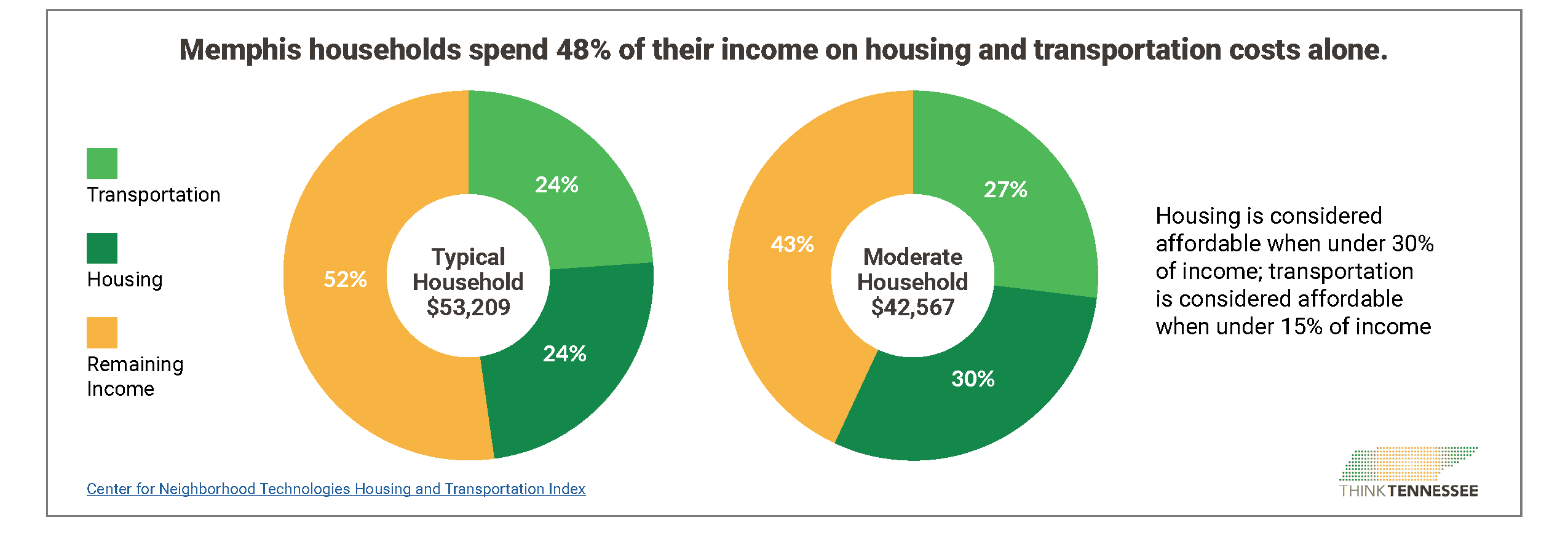NASHVILLE – A new blog post and interactive map from nonpartisan think tank ThinkTennessee finds that while 46 of the 50 largest metro areas in the U.S. have dedicated funding for transit, two of Tennessee’s biggest cities, Nashville and Memphis, are not yet among them. The findings raise important questions as localities across the state consider opportunities to manage growth and promote equitable access to mobility through investments in transportation infrastructure.
“Dedicated funding is essential to a community’s ability to construct, operate, and maintain reliable, high-quality public transportation – from sidewalks to buses to light rail,” said Erin Hafkenschiel, president of ThinkTennessee. “Cities and towns all over Tennessee are in dire need of more resources for transportation, and we hope that this data will empower local decisionmakers to evaluate potential revenue sources for future investment in transit and multimodal infrastructure.”
ThinkTennessee’s interactive map and dataset analyzes the transit funding sources for the top 50 major metropolitan areas. The map builds on tools such as the American Public Transportation Association’s (APTA) Center for Transportation Excellence, which tracks public transportation ballot measures in all 50 states. In addition to that data, the new interactive map also includes comprehensive information on local funding structures and the revenue generated for transit by metro area.
Using this new multilayer map analysis, ThinkTennessee researchers found that 46 of the 50 largest metro areas in the U.S. have secured some form of dedicated funding for their transit agencies. The most common source is sales tax: 39 of the 46 major metro areas with dedicated funding utilize some form of sales tax ranging from 0.375% to 2%, which generates an average of almost $394 million in annual revenue per region. Other common sources of revenue include various forms of property tax, such as property title transfer fees or mortgage recording fees, and vehicle registration or sale fees.
High-quality transit systems improve lives and access to opportunities, and local dedicated funding provides recurring revenues that support quality transit, while also increasing the likelihood of winning state and federal grants and enabling more stable long-range planning.
Metro areas with strong public investments in transit provide benefits to all residents – those who live in communities with high-quality transit service benefit from more affordable transportation costs, increased public safety and health, improved mobility options for non-drivers, regional economic development, and improved environmental quality.
Both the interactive map and dataset and blog post can be found at thinktennessee.org.





